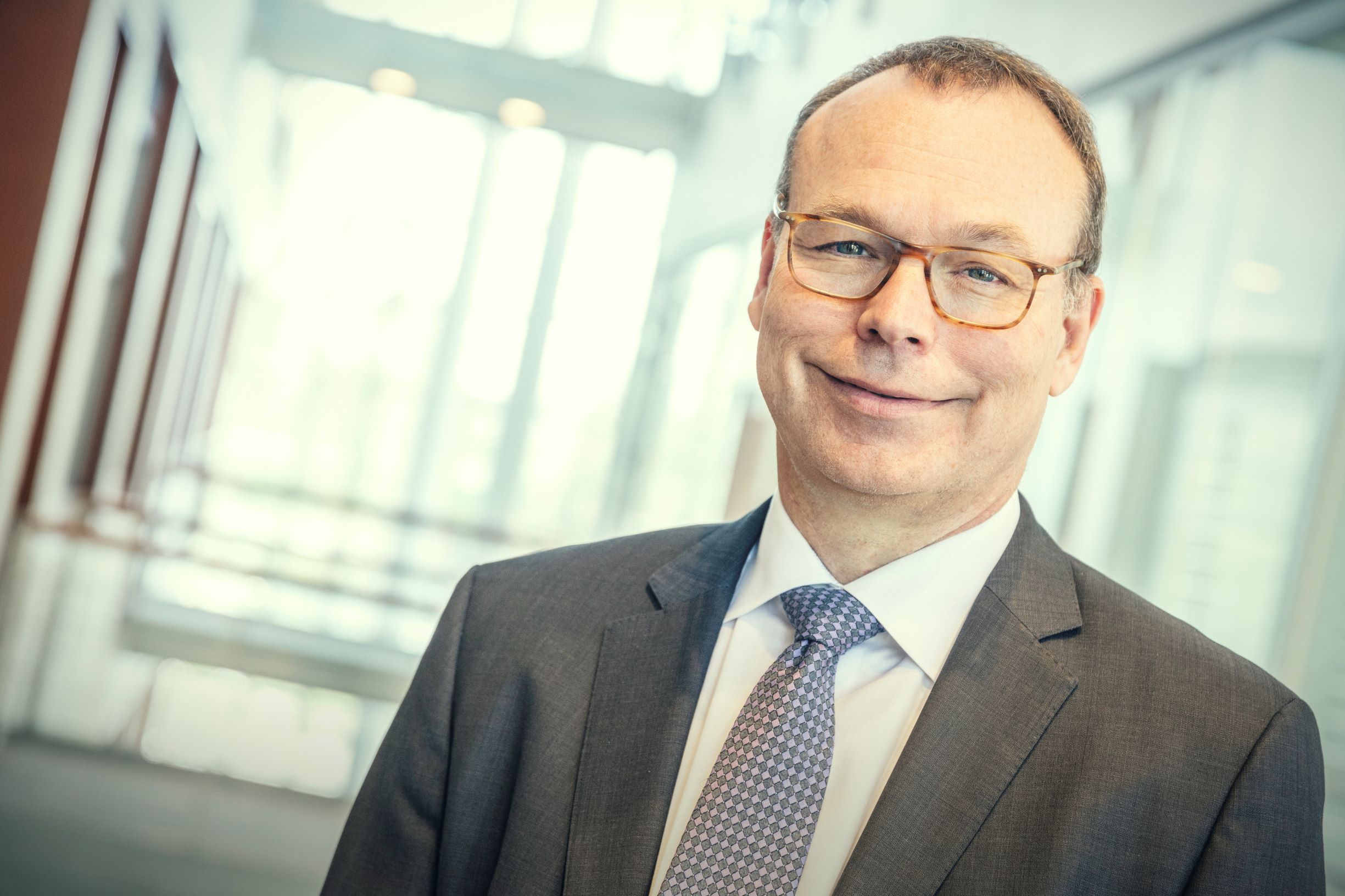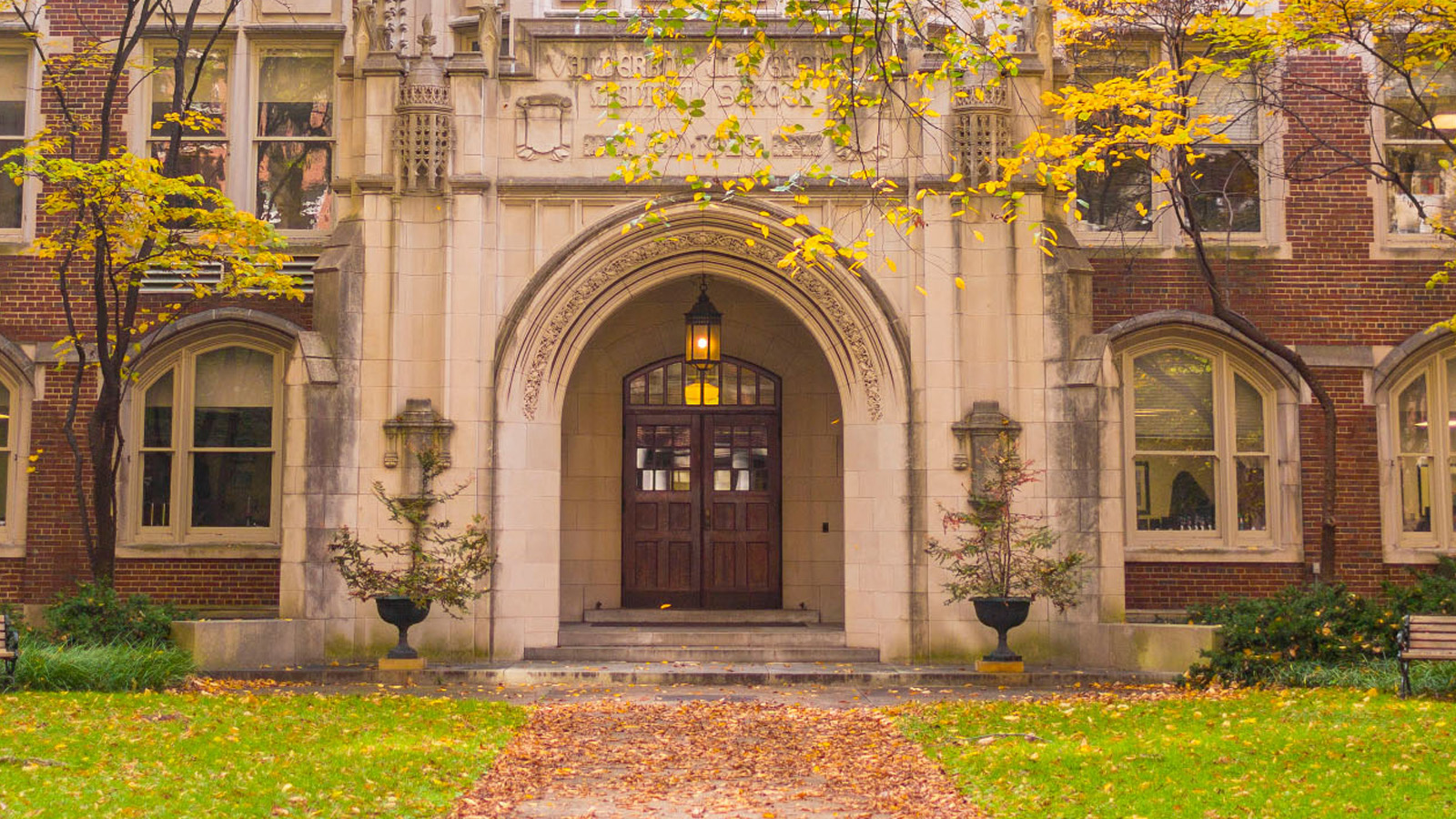A Letter from the Dean

Medical school isn’t to be “gotten through.” It’s an experience to savor as you evolve into the physician you want to be – equipped to navigate the change ahead on your journey through a career in medicine. You’re choosing a place that will be the beginning act in the drama of your medical career. It’s no longer simply preparation – it’s an experience that merges learning and practice.
Like many of the faculty (and deans) at Vanderbilt, as a graduate of this medical school I have a deep connection to the traditions and the experiences of its students. We have a personal, vested interest in training physicians who are not only exceptional clinicians, but also “specialists” at building relationships with people. We provide that kind of education through a highly personal, yet broad intellectual experience that enables leadership in the fast-paced change taking place in all corners of biomedical science and health care.
Medicine needs the next generation of physicians to be people who both excel and lead in the clinical setting as innovators of new processes and technologies designed to support and enhance clinical care. The Vanderbilt medical curriculum is a model for institutions across the country for its emphasis on lifelong learning and extensive exposure to real world patient care experience throughout all four years of medical school.
Your journey will be rife with first experiences, from seeing your first cadaver, your first physical examination of a patient, the first time you help deliver a baby, and yes, the first time you support a patient at the end of life. But the important “firsts” will keep coming long after you leave the halls of medical school. The Vanderbilt experience is crafted to impart the skills and confidence you will need to manage new and evolving healthcare trends with a mind conditioned to make decisions that consider the broadest array of evidence – including social and behavioral factors as well as the biological and data sciences.
Medicine is a life of service – and at times sacrifice. We sometimes miss the evening meal or the soccer game as we are called to be there when our patients need us. And yet it’s a life full of rich rewards because of the profound and direct difference we can make in people’s lives. Whether you’re still weighing medicine as your career path or assessing which institution best fits you: know that Vanderbilt is a medical school with tradition and culture built around mutual support as together we engage and shape the next frontiers in science and health care.
Best wishes on your journey,
Jeffrey R. Balser, M.D., Ph.D.
Dean, Vanderbilt University School of Medicine
President and CEO, Vanderbilt University Medical Center
About Dean Balser
Jeffrey R. Balser, M.D., Ph.D.
Dean of Vanderbilt University School of Medicine
President and CEO, Vanderbilt University Medical Center
M.D./Ph.D. (pharmacology), Vanderbilt University School of Medicine, 1990
B.S. Engineering, Tulane University, 1984
Dr. Balser undertook residency training in anesthesiology and fellowship training in cardiac anesthesiology and in critical care medicine at The Johns Hopkins Hospital in Baltimore, MD. He joined the faculty at Johns Hopkins in 1995, where he practiced cardiac anesthesiology, ICU medicine, and led an NIH-funded research program aimed at the genetics of cardiac rhythm disorders, such as sudden cardiac death.
He returned to Vanderbilt in 1998 as Associate Dean for Physician Scientist Development, and soon was appointed Chair of the Department of Anesthesiology, directing one of the medical center’s largest clinical service programs. He became the Medical Center’s chief research officer in 2004, leading a period of scientific expansion that moved the Medical Center into the nation’s top 10 in NIH funding, launching big-science programs integrating health informatics and genomics that stimulated the Medical Center’s national leadership in personalized medicine.
In 2008 he was elected to the National Academy of Medicine, and later that year was named the eleventh dean of Vanderbilt’s School of Medicine since its founding in 1875. In 2009, he was also named Vice Chancellor for Health Affairs with executive responsibility for all health-related programs including the hospitals, clinics, research programs, and the medical and nursing schools. He has led the Medical Center through a period of marked service-volume growth with major inpatient expansions of the children’s hospital and the adult critical care areas, bolstered by 4% compound annual growth of outpatient visits (over 2.1 million per year), and by the creation of region’s largest, multi-state provider-led network (over 50 hospitals and 3000 clinicians: the Vanderbilt Health Affiliated Network).
In 2013-2014, he led a $230 million (8%) cost reduction across all mission areas, improving the Medical Center’s competitive position in a rapidly evolving price-sensitive marketplace. In coordination with the Vanderbilt Chancellor and Board of Trust, Dr. Balser has led the Medical Center through a restructuring process that concluded April 30, 2016, placing its clinicians, hospitals, clinics, research and graduate medical education programs into a financially distinct not-for-profit corporation, Vanderbilt University Medical Center (VUMC). As President and CEO of VUMC, he reports to an independent board of directors, while also serving as dean of the Vanderbilt University School of Medicine.
Robyn Cosby
Chief of Staff, Office of the President and CEO of Vanderbilt University Medical Center
Debbie Fischer
Sr. Executive Assistant, Office of the President and CEO of Vanderbilt University Medical Center
